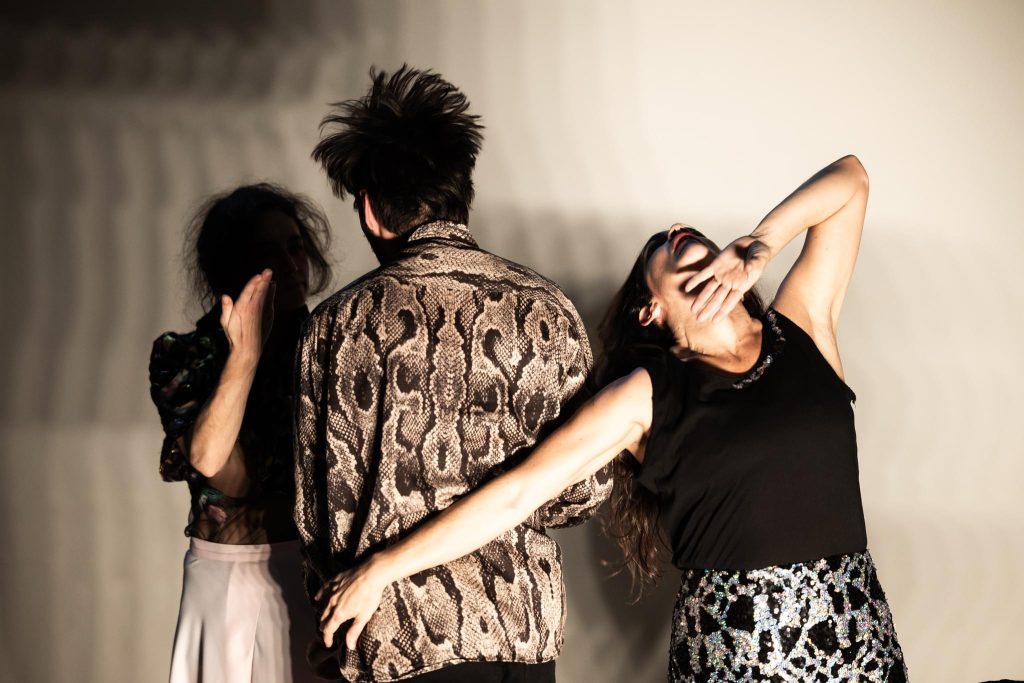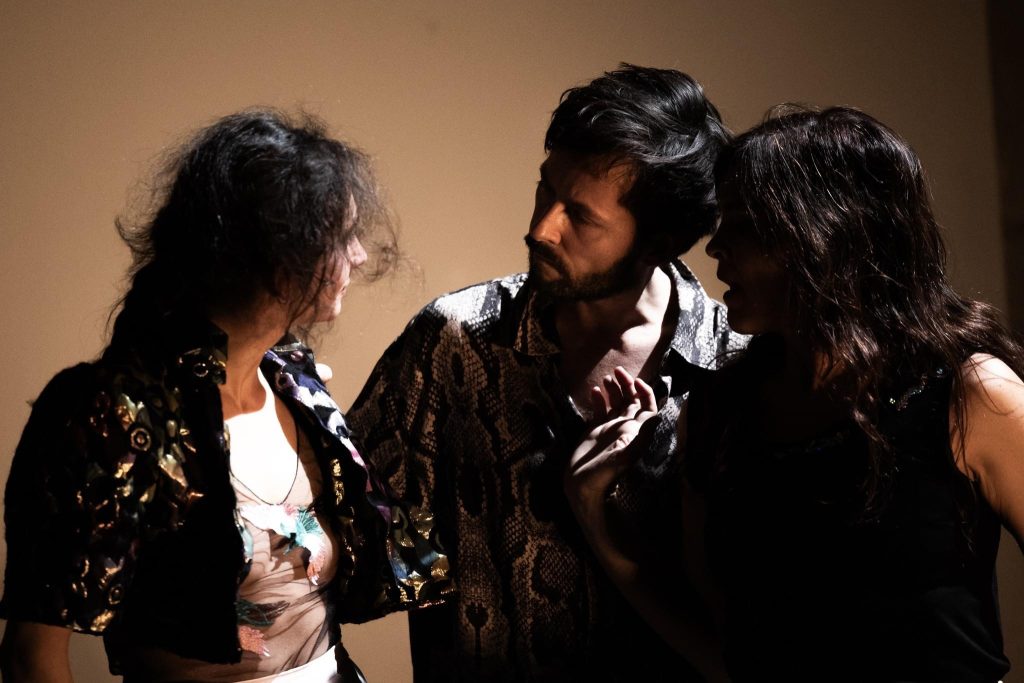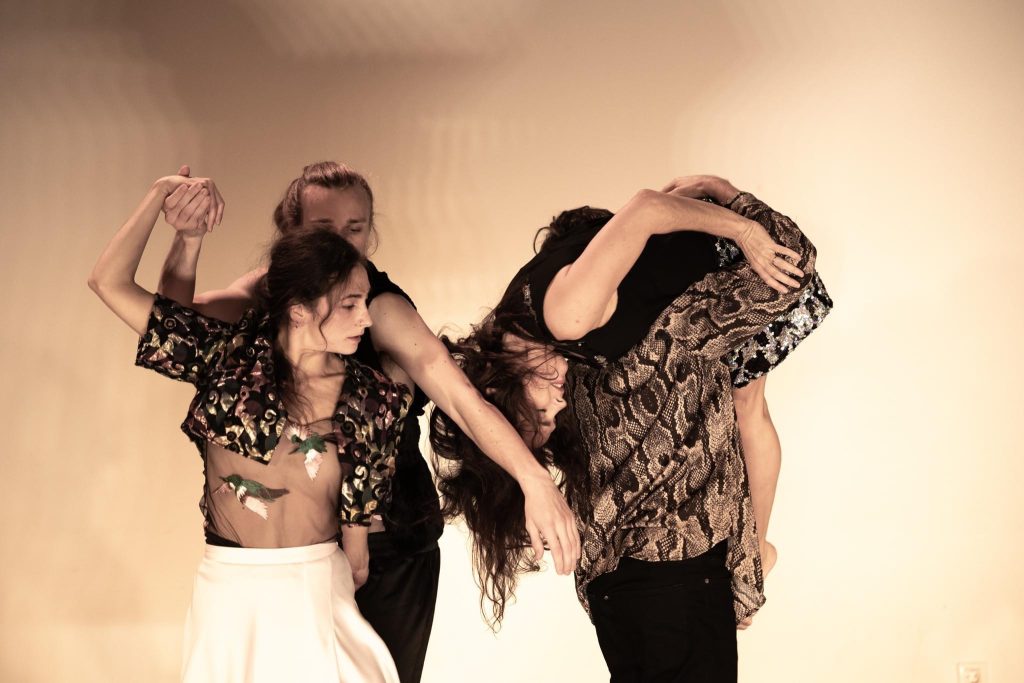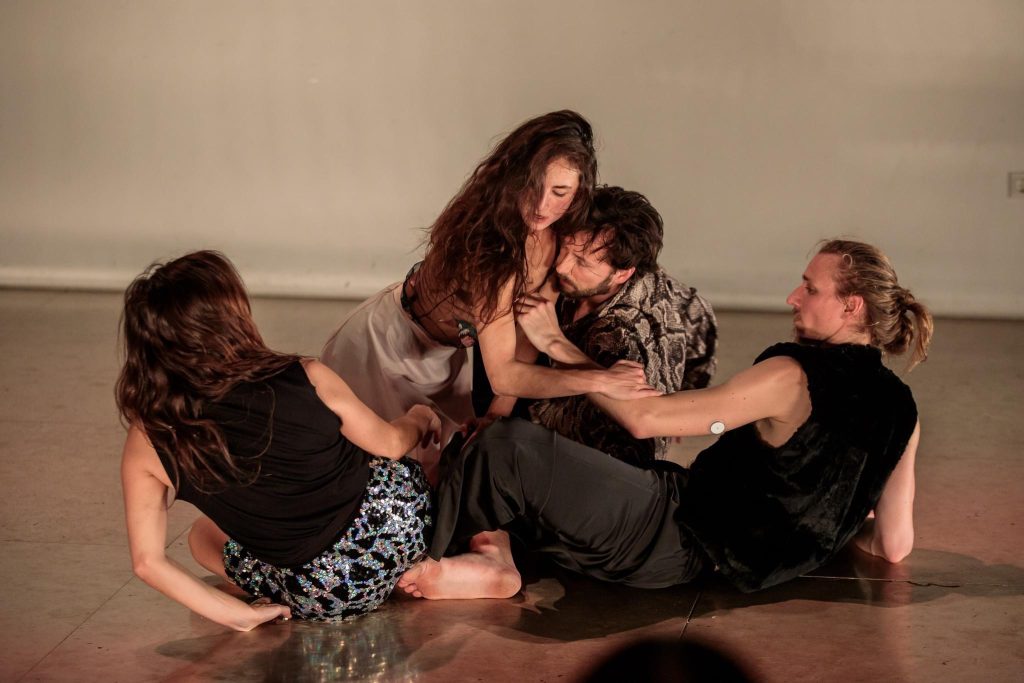PREMIERE: 19 November 2023 City Museum Ljubljana
- Concept and direction: Agostina D’Alessandro
- Created with and performed by: Milan Tomášik, Kristýna Peldová, Žigan Krajnčan, Agostina D’Alessandro and Kristijan Krajnčan
- Original music: Kristijan Krajnčan
- Light design: David Cvelbar
- Costumes: Vesna Mirtelj
- Video and photography: August Adrian Braatz
- DOP: Dejan Ulaga
- Graphic design: Rok Marinšek
- Executive producer: Urška Centa
- Producer: Goran Pakozdi
- Production: NEST Institute
- Co-production: Flota, zavod, Murska Sobota, Flota, Ljubljana
- Partner: Adrian film Institute
- Special thanks to Andreja Kopač
- With the financial support of the Ministry of Culture of Slovenia and City of Ljubljana.
One body is not enough is a space for questioning identity and the multiplicity represented by a single body. In a shared space, four dancers play up with their political bodies to highlight key questions: How is our identity constructed? Is it determined by our bodies? Maybe by a cultural identity? Or maybe by our family identity?
The piece reflects on what defines us: first emerges the body and its gender, a gender identity that belongs to a family and is part of a social group that forms a culture and emanates from a particular country. In doing so, it attempts to grasp the notion of multitude of four collaborating dancers from four different countries: Slovenia, Slovakia, Czech Republic, and Argentina. These diverse origins provide a wide canvas for a radical exploration: What are our unique social gestures? Can we discern elements of our own identities in our movements? Is it possible to detect atavism in us? And what distinguishes us in our individual homelands?
One body is not enough looks at the notion of identity to understand better the complexity of interpersonal relationships; and the resulting verbal and non-verbal communication, language, social adaptation, and individual behaviors that interact with the community. The physical postures of the family, the movements of the body that represent the homeland— everything that allows us to identify ourselves—is research material in this piece.
In the context of today’s society, which is moving toward new conceptions of what constitutes our identity and defines who we are, this self-questioning seems necessary. The creators of the play aim to transcend narrow perspectives and simplistic answers, encouraging individuals to challenge their own self-conceptions and uncover surprises along the way. They invite the audience to question the ‘reality’ of their political, social, and abstract bodies to enter in the process of disidentification, which allows us them discover other ways of positioning our bodies.
The bodies are understood as a social mycelium, which in the absence of the “I” suddenly become a present “we”. Dancing mycelia thus become a tool of articulation and actualizion of a social discourse.




